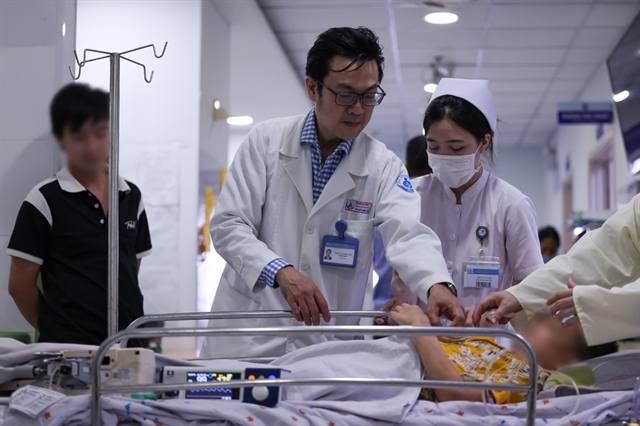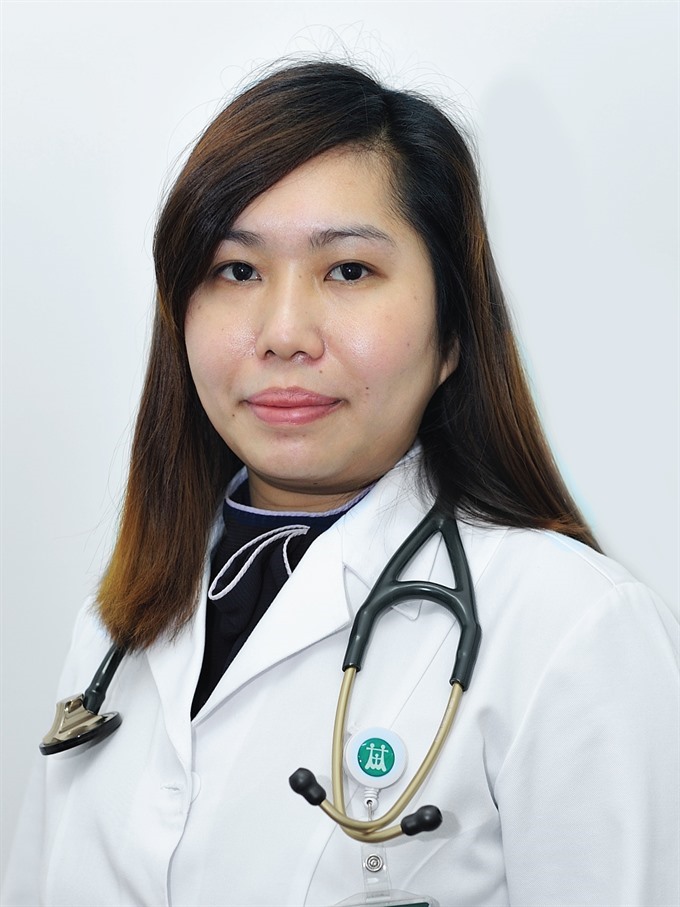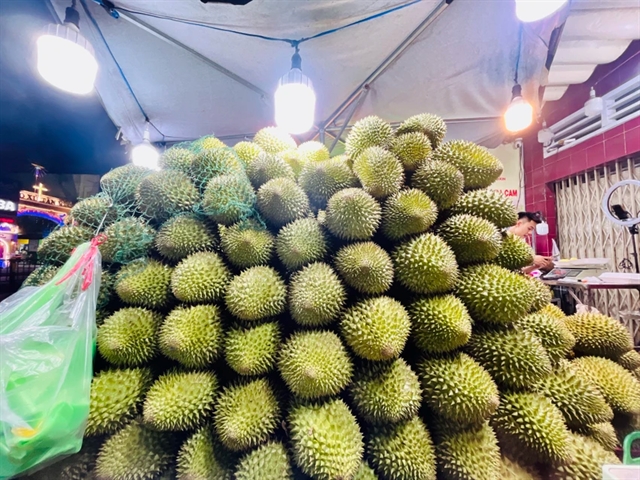 Life & Style
Life & Style

For many kids in Hà Nội, the next few weeks are all about getting back to school after a long summer break. Whether your child is entering school for the first time or about to graduate, back-to-school time is a good opportunity for parents to check up on their children’s health and make sure they’re protected against common childhood diseases and illnesses.
 |
| Doctor Catherine Gonzalez. — Photo courtesy of Family Medical Practice Hanoi. |
By Dr. Catherine Gonzalez *
For many kids in Hà Nội, the next few weeks are all about getting back to school after a long summer break. Whether your child is entering school for the first time or about to graduate, back-to-school time is a good opportunity for parents to check up on their children’s health and make sure they’re protected against common childhood diseases and illnesses.
Immunization Review
First on the list should be immunizations. Vaccination requirements can vary by schools. To find out exactly what is required at your child’s school, contact the school directly. A visit to pediatrician is recommended to review all vaccinations and make sure all necessary vaccines have been given. A series of vaccines may be given if they were missed or left incomplete at earlier ages.
Talk with your child’s school nurse
If you have concerns about your child’s health at school, you should set up an individual meeting with a school nurse and your child’s class teachers at the beginning of the school year. Most international schools in Hanoi have a nurse who is also an important part of the team as he/she can provide temporary care or a referral for your child in case of illness or injury on school property.
Both your child’s teacher and the school nurse are integral to developing a medical action plan for your child if he or she has an acute or chronic illness or asthma, severe allergies like food or bee stings.
Meet with your school nurse and teachers to determine school-specific policies for self-administration of medications by your child (for example, asthma inhalers). Children diagnosed with attention deficit hyperactivity disorder (ADHD) should also have a family discussion with both teachers and the school nurse and determine if an individualized educational plan is required. All schools in Vietnam must abide by laws regarding use of medications at school.
Does your school make the meal grade?
If healthy meals are a priority for you when sending your child to an International school or kindergarten in Hanoi, check out how your school stacks up. If your school does not make the grade, consider packing your own meals or encouraging your school to include healthier options.
Most schools provide a copy of their menu or post it in the school. Here are some important things to consider when checking out a school’s food service.
Is there balance in each meal? Balanced meals mean that there is some sort of protein (meat, seafood, tofu, or egg), starch (rice, potato, noodle, or bread), vegetable, and fruit.
Are the portions adequate to meet nutrition needs? Or is the meal 90 per cent starch with just a small serving of protein and vegetable? One serving of vegetable is ½ cup when cooked, and considering that school-age children need 3-4 servings per day, school lunches should at least provide one serving, if not two.
Do they provide a good variety? Do they alternate between watermelon and pears every day for snack or do they serve different types, depending on what is in season? Fruit is important because many varieties are good sources of vitamin C, and antioxidants which may play a role in cancer prevention and heart health.
Consider the source of your child’s food. If you buy organic at home, and avoid local milk, which has high suspicion of being laden with antibiotics and powdered milk bought from China, make sure that your child is not consuming those very foods at school. If the school does not provide milk from a trusted source, either have your child pack a cup in a cooler bag from home, or just skip it during the school day.
If there is a parent-teacher committee at the school your child attends, or they welcome feedback, urge them to use organic vegetables. There are several organic farms near or in Hà Nội now, which will reduce the risk that your child is consuming pesticides or other chemicals which cannot simply be washed off.
Lastly, talk to your child about what they are eating. If your child’s school has a reputation for terrible food, petition for change and if necessary, pack their lunch. If the school allows some choices, ask them what they eat and talk about making good choices. Most of an adult’s eating habits are established during childhood so consider that you have an opportunity now to help determine if your child will have a healthy, productive life, or if they will struggle with obesity or poor nutrition.
Backpack Problems
Overloaded backpacks can injure your child’s back. According to the American Pediatric Association, a child’s backpack should weigh no more than 10 per cent of his or her body weight.
If your child routinely lugs around more than what’s recommended for her weight, try purchasing a backpack with wheels or one with a support belt to help distribute the weight more evenly.-- Family Medical Practice Vietnam
*Doctor Catherine Gonzalez is a General Practitioner at Family Medical Practice Hanoi.
For more advice on any medical topics, visit Family Medical Practice Hanoi on 298I Kim Mã, Ba Đình or call (024) 3843 0748. Email: hanoi@vietnammedicalpractice.com or check out www.vietnammedicalpractice.com
FMP’s downtown HCM City location is at Diamond Plaza, 34 Lê Duẩn, District 1; Other facilities are at: 95 Thảo Điền Street, District 2. Tel: (028) 38227848. E:hcmc@vietnammedicalpractice.com
FMP Danang is located at 96-98 Nguyễn Văn Linh Street, Hải Châu District, Đà Nẵng. Tel: (0236) 3582 699. E: danang@vietnammedicalpractice.com.




